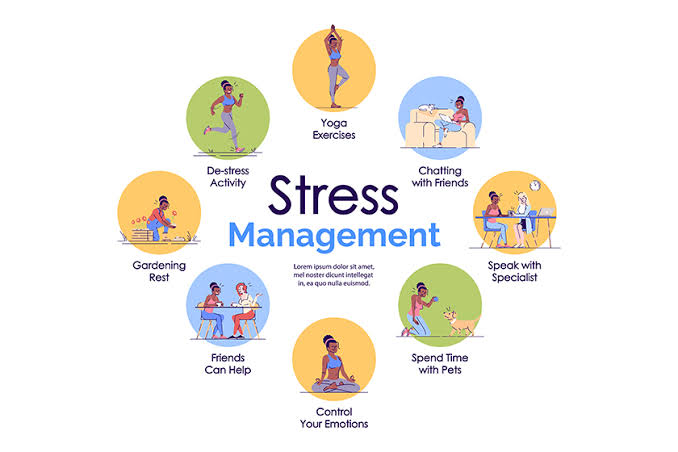Stress is an inevitable part of life, and in the fast-paced, digitally connected world of 2025, managing it effectively has become more critical than ever. Whether caused by work demands, financial pressures, or personal responsibilities, chronic stress can affect both mental and physical health. The art of effective stress management lies in adopting techniques that not only relieve immediate tension but also build long-term resilience. By understanding and applying structured methods, anyone can maintain balance, improve focus, and enhance overall well-being.
Understanding the Impact of Stress
Before exploring management techniques, it is important to understand how stress affects the mind and body. Short-term stress can enhance alertness and motivate action, but prolonged exposure leads to negative effects, including fatigue, anxiety, and reduced productivity.
Common consequences of unmanaged stress include:
- Difficulty concentrating or making decisions
- Mood swings and irritability
- Sleep disturbances and low energy
- Physical symptoms like headaches, muscle tension, and digestive issues
- Increased risk of chronic conditions such as hypertension and heart disease
Recognizing the signs early is the first step toward effective management.
Practicing Mindfulness and Meditation
Mindfulness and meditation have become cornerstone techniques for stress management in modern life. They encourage living in the present moment, reducing overthinking and anxiety about the future.
Effective mindfulness strategies include:
- Breathing Exercises: Deep and controlled breathing helps calm the nervous system.
- Guided Meditation: Using apps or online resources to focus attention and relax the mind.
- Body Scanning: Observing and releasing physical tension in different parts of the body.
- Mindful Activities: Engaging in activities like walking or cooking with full awareness.
Consistent practice not only relieves immediate stress but also enhances emotional resilience over time.
Physical Activity and Exercise
Exercise is one of the most effective ways to manage stress because it reduces the level of stress hormones and triggers the release of endorphins, which boost mood naturally. Physical activity also improves sleep and cognitive function, creating a strong foundation for overall well-being.
Recommended activities include:
- Daily walks, jogging, or cycling to clear the mind
- Yoga or Pilates for combined physical and mental relaxation
- High-intensity workouts to release built-up tension
- Group sports or fitness classes for social engagement
Integrating regular movement into your routine is a proactive step in maintaining both mental and physical health.
Time Management and Prioritization
Poor time management is a common source of stress. Learning to prioritize tasks and avoid unnecessary pressure can significantly reduce daily tension.
Practical time management strategies include:
- Task Prioritization: Focus on high-impact tasks first using the 80/20 principle.
- Time Blocking: Allocate specific periods for work, breaks, and personal activities.
- Delegation: Assign tasks to others to avoid overloading yourself.
- Avoiding Multitasking: Concentrate on one task at a time to improve efficiency and reduce mistakes.
By managing time effectively, you create a sense of control, which directly alleviates stress.
Building a Support System
Social support is a powerful buffer against stress. Connecting with family, friends, or colleagues can provide perspective, emotional relief, and encouragement during difficult times.
Ways to build and maintain a support network:
- Sharing experiences and challenges with trusted individuals
- Participating in community or social groups
- Seeking mentorship or guidance for professional concerns
- Engaging in social activities that promote relaxation and laughter
A strong support system reminds you that you do not have to face challenges alone.
Adopting Healthy Lifestyle Habits
Lifestyle choices play a significant role in stress management. Maintaining healthy habits ensures that the body and mind are better equipped to handle daily pressures.
Key habits include:
- Balanced Diet: Eating nutrient-rich foods supports energy and emotional stability.
- Quality Sleep: Prioritizing 7–9 hours of restful sleep to allow recovery.
- Limiting Stimulants: Reducing excessive caffeine or alcohol, which can heighten anxiety.
- Hydration: Drinking enough water to support physical and mental performance.
Healthy routines build the foundation for sustainable stress reduction.
Using Relaxation Techniques
Intentional relaxation techniques can calm the body and mind during high-stress periods. These methods can be practiced anywhere and often provide immediate relief.
Popular relaxation techniques include:
- Progressive Muscle Relaxation: Tensing and releasing muscle groups to reduce physical stress.
- Visualization: Imagining peaceful scenes or positive outcomes to refocus the mind.
- Soothing Music or Sounds: Listening to calming audio to trigger relaxation responses.
- Short Breaks and Power Naps: Allowing brief pauses to recharge energy and focus.
Incorporating these techniques throughout the day keeps stress from escalating.
Seeking Professional Support
In some cases, stress may become overwhelming and require professional assistance. Speaking with a counselor, therapist, or mental health professional can provide coping strategies tailored to individual needs.
Professional support may involve:
- Cognitive behavioral therapy (CBT) for reframing negative thought patterns
- Stress management workshops or coaching
- Mindfulness-based stress reduction (MBSR) programs
- Medical evaluation if stress is affecting physical health
Seeking help is a proactive step toward long-term well-being and resilience.
Conclusion
Mastering the art of effective stress management involves a combination of mindfulness, physical activity, time management, healthy habits, and strong social support. By integrating relaxation techniques and maintaining a balanced lifestyle, you can prevent stress from overwhelming your daily life. When necessary, professional guidance ensures sustainable mental health and improved quality of life. In 2025, adopting these strategies not only reduces immediate stress but also equips you with lifelong tools for resilience and productivity.



